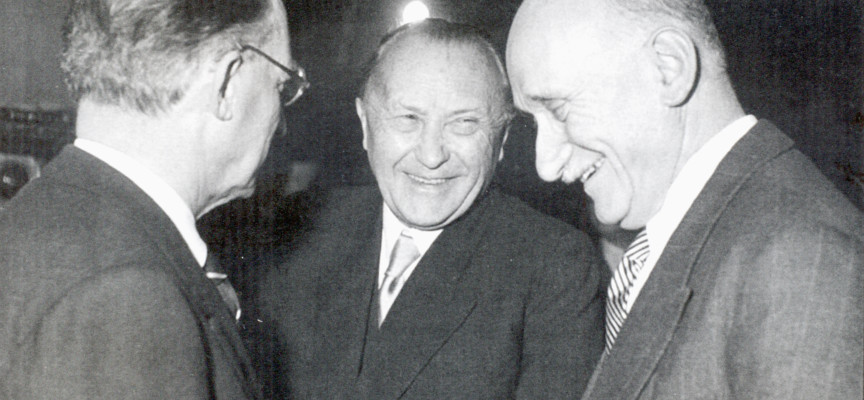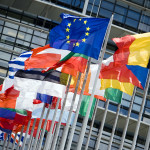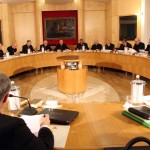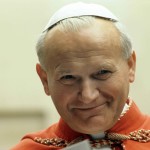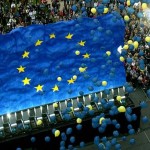On April 21, 1954, exactly 60 years ago, Alcide De Gasperi – one of the fathers of the European Community together with Robert Schuman and Konrad Adenauer – made a speech to the European Parliamentary Conference gathered in Paris. We propose here its final part, whose topical character is evident.
“Of course for European unity the enlargement of the Common Market is an important issue, but free competition, which would be its consequence, has also negative aspects that can be reduced only by the strength of a sentiment or an idea that has the power to stimulate the conscience and the will. This sentiment, this idea belong to the cultural and spiritual heritage of our common civilization.
If I say with Toynbee that the origin of this European civilization is Christianity, I do not intend to introduce any exclusive confessional criterion in evaluating our history. I only want to make reference to the common European heritage, to the unitary morality that enhances the figure and the responsibility of the human person with their leaven of evangelical fraternity, their cult of the law inherited from the ancients, their cult of beauty refined through the centuries, and their desire for truth and justice made stronger by the experience of thousands of years.
It is true that these spiritual forces would remain inactive in our archives and museums if this idea ceases to be incarnated in the living reality of a free democracy which, by resorting to reason and experience, dedicates itself to the pursuit of social justice. It is also true that the democratic machine and the spiritual and cultural organization would idle if the political structure did not open its doors to the representatives of the general interests, beginning with those of labour.
So none of the trends that prevail in this or that area of our civilization can expect to be transformed into a single, dominant, and unique idea of the architecture and vitality of the new Europe. (…)
Now, it will be this very Assembly that during the coming debates, shall endeavour to identify the principles of a social, economic, and moral policy according to which the sovereign States could decide to build the common house”.
Il 21 aprile 1954, esattamente 60 anni addietro, Acide De Gasperi – uno dei padri della comunità europea con Robert Schuman e Konrad Adenauer – teneva alla Conferenza Parlamentare Europea, riunita a Parigi, un discorso di cui proponiamo la parte conclusiva, la cui attualità è evidente.
“Certo per l’unità europea l’allargamento del mercato comune è un argomento che offre la sua importanza, ma la libera concorrenza, che ne sarebbe la conseguenza, presenta anch’essa degli aspetti negativi che possono essere ridotti soltanto dalla forza di un sentimento o di un’idea capace di stimolare la coscienza e la volontà. Questo sentimento, quest’idea appartengono al patrimonio culturale e spirituale della civiltà comune.
Se con Toynbee io affermo che all’origine di questa civiltà europea si trova il cristianesimo, non intendo con ciò introdurre alcun criterio confessionale esclusivo nell’apprezzamento della nostra storia. Soltanto voglio parlare del retaggio europeo comune, di quella morale unitaria che esalta la figura e la responsabilità della persona umana con il suo fermento di fraternità evangelica, col suo culto del diritto ereditato dagli antichi, col suo culto della bellezza affinatosi attraverso i secoli, con la sua volontà di verità e di giustizia acuita da un’esperienza millenaria.
E’ vero che queste forze spirituali rimarrebbero inerti negli archivi e nei musei se l’idea cessasse di incarnarsi nella realtà viva di una libera democrazia che, ricorrendo alla ragione e all’esperienza, si dedichi alla ricerca della giustizia sociale, è vero anche che la macchina democratica e l’organizzazione spirituale e culturale girerebbero a vuoto se la struttura politica non aprisse le sue porte ai rappresentanti degli interessi generali e in primo luogo a quelli del lavoro.
Dunque nessuna delle tendenze che prevalgono nell’una o l’altra zona della nostra civiltà può pretendere di trasformarsi da sola in un’idea dominante e unica dell’architettura e della vitalità della nuova Europa (…).
Ora, sarà proprio questa nostra Assemblea che, nel corso dei prossimi dibattiti, si sforzerà di trovare i principi di una sintesi politica, sociale ed economica e morale in base alla quale gli Stati sovrani possano decidere di edificare la casa comune”.

